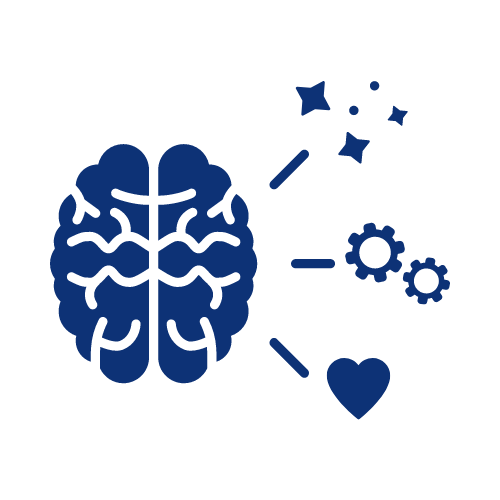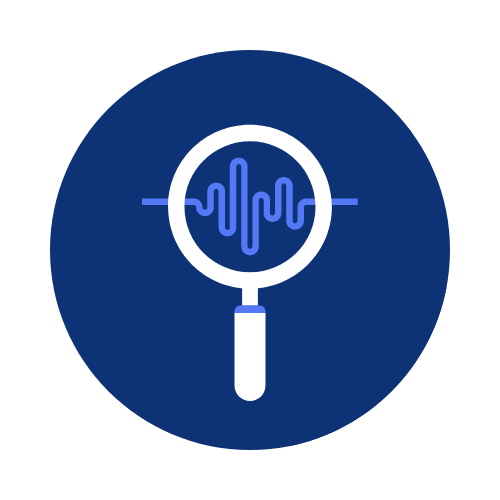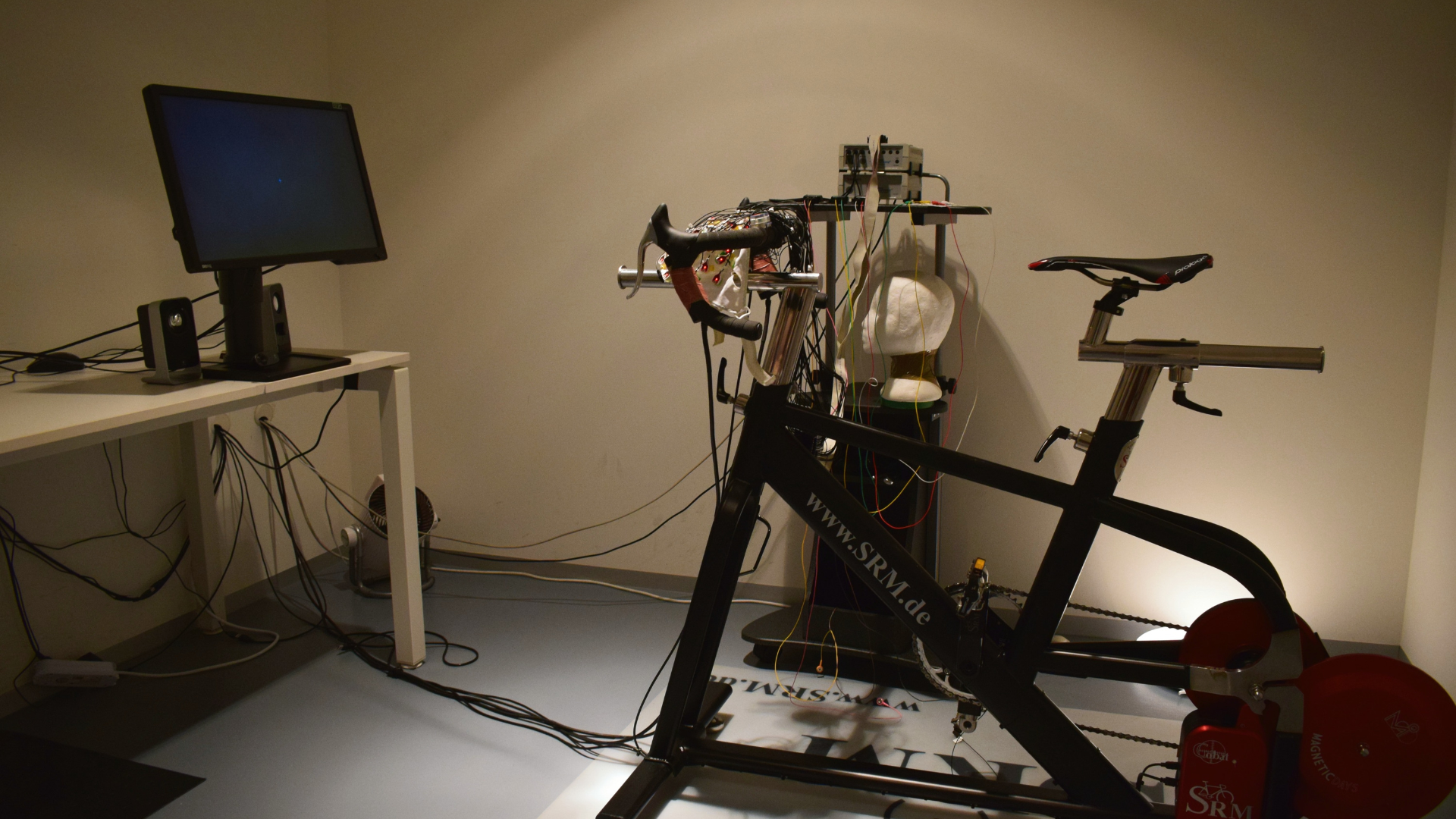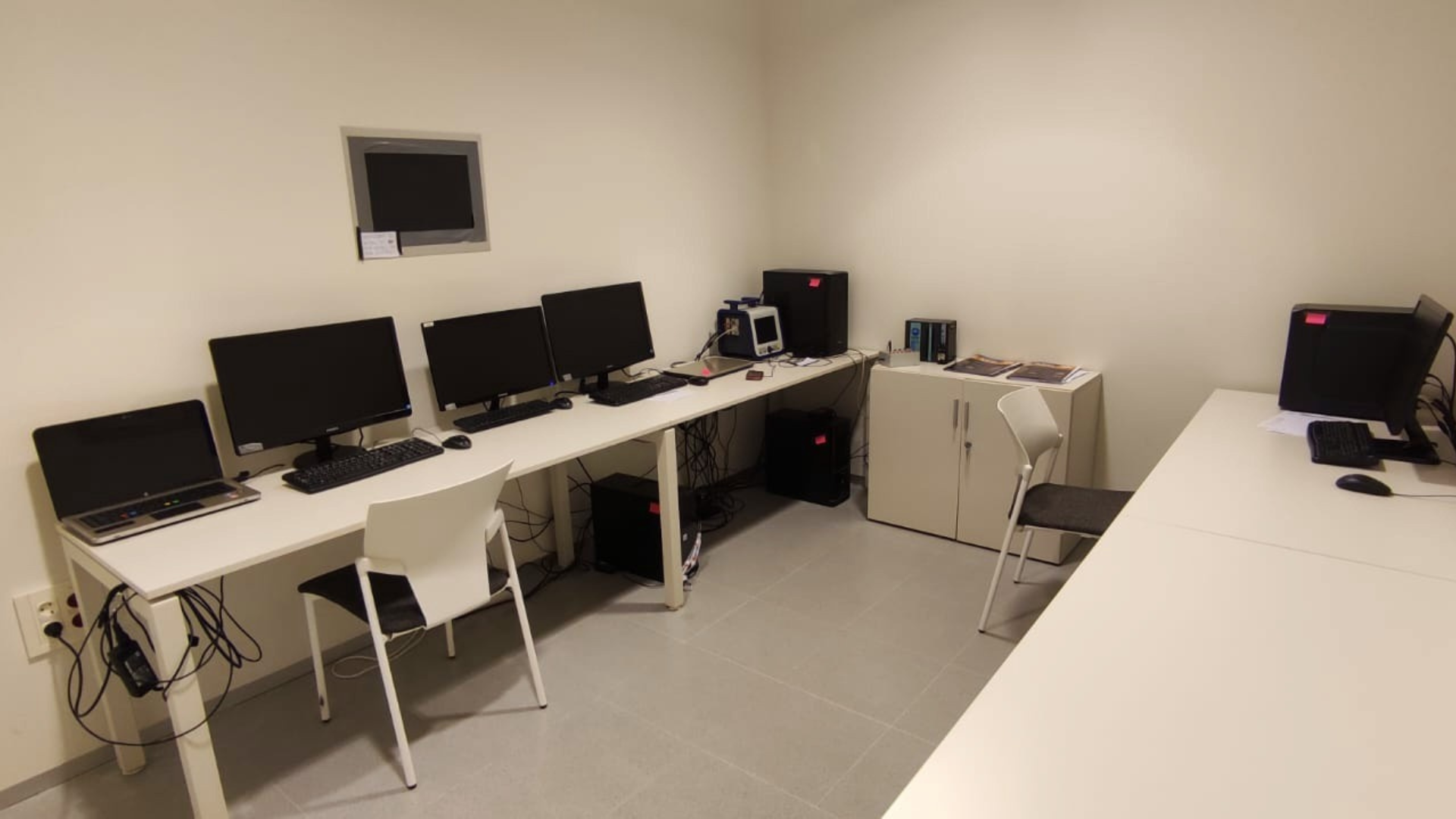
About Us
The lab develops its research within the framework of Cognitive Neuroscience and Experimental Psychology.
We are interested in different topics, such as the cognitive, neural and phenomenological underpinnings of different strain states (e.g., high intensity exercise), interoceptive processing, and the relation between affect dynamics and psychological well-being.
We employ different experimental methods to measure behavior (speed and accuracy of responses in different tasks) and brain activity employing magnetic resonance imaging (MRI) and electroencephalography (EEG).

Daniel Sanabria
Principal Investigator
I am Full Professor at the Department of Experimental Psychology, University of Granada, where I teach undergraduate psychology students and graduate students from the Master of Behavioral and Cognitive Neuroscience and the Master of Research in Physical Activity and Sport. In the lab, we currently investigate cognitive (mainly attention and perception) and brain functioning in strain states such as physical exercise and drowsiness. We are also interested in the subjective experience linked to such states, as when people reach physical exhaustion. In my spare time, I like cycling in the mountains that surround the beautiful city of Granada.
#perception #attention #brain #physical_exercise #fatigue #arousal

Pandelis Perakakis
Principal Investigator
I am an associate professor of psychology at the Complutense University of Madrid, teaching Individual Differences in the department of Social, Work and Differential Psychology. My research focuses on human psychophysiology and affective science with a particular interest in bistability and affect shift dynamics, and their significance for physiological adaptation and psychological well-being. In 2012, I co-founded Open Scholar, a group of volunteer researchers developing and promoting models and tools to improve scholarly communication and evaluation.
#affect_dynamics #psychological_well-being #openscience

Luis F. Ciria
Early-Career PI
My research focuses on Health Neuroscience, exploring how health-oriented behaviors shape neural dynamics underlying higher-order cognition. I study how the brain adapts to maintain optimal decision-making under physiological challenges. As a young researcher, I aim to expand my work and enhance its scientific and societal impact.
#cognition #brain #physical_exertion #sleep #drowsiness

Chiara Avancini
Early-Career PI
I am interested in uncovering the neurodynamics of consciousness when humans are in a physical state of high arousal. Specifically, my current project studies how networks supervising cognitive control reconfigure when the body is brought to a strain state through physical exercise. I am aiming to use my technical and theoretical knowledge built through my past work to investigate the link between consciousness and physical arousal. Outside of research I enjoy sports, books, and movies so bad that they are good.
#cognitive_control #consciousness #brain #physical_exertion #sport

Darias Holgado
Postdoc researcher
My main interest is to understand the cognitive and neural bases of exercise to bridge the (big) gap between Sport Science, Psychology and Cognitive Neuroscience. Moreover, I am specially interested in meta-reach in Sports science and the fight against doping from an applied point of view. Currently I’m working as a postdoc at the University of Lausanne in Switzerland (till end 2022) and the University of Granada in Spain.
#mental_fatigue #metascience #tdcs #systematic_reviews #meta-analysis

Carmen Goicoechea
Postdoc researcher
My research focuses on the fluctuations of the affective system. I have worked as a research assistant in two funded multidisciplinary projects, and as a predoctoral fellow in the Translational Clinical Psychology lab in Marburg, Germany. Currently, I am a postdoctoral fellow at the Complutense University of Madrid, Spain.
#affect_dynamics #well-being #psychological_flexibility

Clara Alameda
PhD student
I am a PhD student in Cognitive Neuroscience. The area of research that most catches my attention is that concerning modulations of the level of consciousness on behavior and brain activity. Specifically, I am interested in how variations in arousal, such as the wake-sleep transition, can lead to «altered» states of consciousness, and the implications these states have on cognitive processing in general, and multisensory integration in particular.
#consciousness #arousal #multisensory #neuroscience

Marina Dauphin
PhD student
I am a PhD student fascinated by how the brain adapts to different states. My research explores neural sensory processing during movement using EEG and advanced computational approaches. Through the STEPSTATE project, I investigate how walking shapes auditory representations, offering insights into cognition in naturalistic settings beyond resting states.
Research
These are our current and main lines of research.

The interplay between brain function, cognition and phenomenological experience under strain states
We measured the oscillatory brain activity and cognition during strain states such as high intensity exercise and drowsiness. We are also interested on the purported effects of physical exercise on brain and cognitive functioning and on the role of top-down attention (and neural correlates) on self-paced exercise by means of non-invasive brain stimulation (tDCS), drugs (e.g., Tramadol) and cognitive load manipulations.

Affect shift Dynamics in the prediction of psychological well-being
We introduce concepts and tools from ecology and the study of natural systems to investigate the structure and function of the human affect system. Using Ecological Momentary Assessment, we acquire longitudinal data to explore the relation between affect shifts and psychological well-being. We explore novel network analysis and visualisation methods to map psychological processes to clinically relevant outcomes and enhance idiographic assessment and psychological treatment.

psychophysiological determinants of the heartbeat evoked potential (HEP)
We investigate the physiological parameters involved in the origin and modulation of the Heartbeat-Evoked Potential (HEP), as an objective and direct index of interoception, which refers to the neural processing of internal body signals relayed to the brain via visceral afferents.
Current
Funded Projects
STEPSTATE: Stepping into a distinct state: a novel approach to unravel neural auditory processing and representation while walking
This project investigates how the brain processes auditory information during walking, a natural behavior, and compares it to the resting awake state. The research aims to uncover neural differences in auditory processing during walking and their broader implications for cognitive neuroscience.
Ministerio de Ciencia, Innovación y Universidades (2024-2027)
PI: Daniel Sanabria
NeuroStatLearn: Uncovering Neural Reconfiguration during Statistical Learning in Strained States
The project explores how the brain adapts to physiological strain during statistical learning, focusing on neural reconfiguration in states of drowsiness and high physical activation. Using EEG and behavioral analysis, it investigates compensatory mechanisms that help maintain cognitive function under internal pressure.
Ministerio de Ciencia, Innovación y Universidades (2024-2027)
PI: Chiara Avancini
DrowsyBrain: Multisensory perceptual decision-making under reduced alertness levels
This project investigates how reduced alertness affects perceptual decision-making, exploring neural reconfiguration mechanisms that help maintain optimal performance. It combines psychophysics, mathematical modeling, and neuroimaging to examine the relationship between cognition, alertness, and homeostasis, with applications in workplace safety and health.
Ministerio de Ciencia, Innovación y Universidades (2023-2026)
PI: Luis Ciria
Beyond Positive and Negative: Uncovering Bistability in Affect Dynamics and their Impact on Well-being and Mental Health
This project investigates the dynamics of affective processes and their impact on psychological well-being, focusing on the development of idiographic methodologies to identify biopsychosocial change processes. It combines ecological momentary assessments, network analysis, and psychometric validation of the Process-Based Assessment Tool (PBAT) to explore multistability, affective transitions, and their predictive value, with applications in personalized mental health interventions and clinical practice.
Ministerio de Ciencia, Innovación y Universidades (2023-2026)
PI: Pandelis Perakakis
CANDY: Modulation of cognitive and neural dynamics during drowsiness: an interdisciplinary approach between physics and neuroscience
This interdisciplinary project combines molecular physics and cognitive neuroscience to study how drowsiness affects decision-making and brain activity in multisensory contexts. Using advanced information theory techniques, it explores potential disruptions in multisensory integration and the reconfiguration of neural networks under reduced alertness.
Vicerrectorado de Investigación y Transferencia – Universidad de Granada 2024-2025
PI: Clara Alameda
Previous projects
The psychophysiological origins of the hearbeat-evoked potential
PGC2018-096655-A-I00
Ministerio de Ciencia e Innovación
(2019-2022)
€84.700,00
PI: Pandelis Perakakis
Monitoring and Intelligent analysis of the physical, social and emotional behavior of the Spanish population for the characterization and control of COVID-19 (MONITOR-COVID)
CV20-29556
Consejería de Transformación Económica, Industria, Conocimiento y Universidades de la Junta de Andalucía
(2020-2021)
€28.500,00
PI: Oresti Baños
Clinical trial on the effects of tramadol and paracetamol on physical, cognitive and brain performance during cycling
17C09DL.
World Antidoping Agency
(2018-2020)
$112.000,00
PI: Daniel Sanabria
Putting the brain to work: Self-paced acute aerobic exercise and executive control
PSI2016-75956-P
Ministerio de Ciencia e Innovación
(2017-2020)
€54.500,00
PI: Daniel Sanabria
Tramadol and sport: Effects on physical and sustained attention performance during cycling exercise
15C01DS
World Antidoping Agency
(2016)
$75.000,00
PI: Daniel Sanabria
Atención sostenida, ejercicio físcio y forma física: conocimiento desde el EEG y EKG
PSI2013-46385-P
Ministerio de Ciencia e Innovación
(2014-2017)
€66.550,00
PI: Daniel Sanabria
Atendiendo y reconociendo tus manos: Una investigación comportamental, electrofisiológica y con neuroimagen
Proyecto PSI2010-19655
Ministerio de Ciencia e Innovación
(2010-2013)
€72.600,00
PI: Daniel Sanabria
Atendiendo y reconociendo tus manos: Una investigación comportamental, electrofisiológica y con neuroimagen
Proyecto PSI2010-19655
Ministerio de Ciencia e Innovación
(2010-2013)
€72.600,00
PI: Daniel Sanabria
El papel de los mecanismos atencionales en la percepción multisensorial
Proyecto SEJ2007-63645:(MEC; 10-2007/10-2010)
€104.060,00
PI: Daniel Sanabria
Proyecto Social Research Call 2020 of "La Caixa" Foundation: An Intelligent Framework to Scrutinise the Social, Behavioural and Emotional Impact of COVID-19
(POSTCOVID-AI), SR20-00668(01/02/2021 – 31/01/2023)
€96.000,00
PI: Baños, Oresti.
Proyecto Consejería de Transformación Económica, Industria, Conocimiento y Universidades de la Junta de Andalucía: Monitoring and Intelligent analysis of the physical, social and emotional behavior of the Spanish population for the characterization and control of COVID-19
(MONITOR-COVID). CV20-29556 (14/11/2020 – 13/11/2021)
€28.500,00
PI: Baños, Oresti
Fundamentos neurocognitivos de la influencia de los ritmos circadianos sobre la atención y la toma de decisiones
Proyecto de Excelencia de la Junta de Andalucía (SEJ-30-54) (2014-2018)
PI: Ángel Correa
Fundamentos neurocognitivos de la influencia de los ritmos circadianos sobre la atención y la toma de decisiones
Proyecto de Excelencia de la Junta de Andalucía (SEJ-30-54) (2014-2018)
PI: Ángel Correa
Proyecto Consolider-Ingenio: Cognición y Educación
CSD2008-00048 del Ministerio de Ciencia e Innovación (2010-2014)
PI: Manuel Carreiras.
Proyecto Hum-5422:Control cognitivo y emocional: Análisis de sus relaciones y medición
(2010-2014)
Proyecto de Excelencia de la Junta de Andalucía.
PI: Alberto Acosta
Proyecto SEJ-03299: Convivencia y resolución de conflictos en el ámbito escolar: Control y autoregulación emocional desde la neurociencia cognitiva
(2008-2012)
Proyecto de Excelencia de la Junta de Andalucía.
PI: Pío Tudela.
Main Publications
2025
2024
2023
2022
2021
Zandonai, T., Holgado, D., Ciria, L., Zabala, M., Hopker, J., Bekinschtein, T., & Sanabria, D.
2020
Bailón, C., Goicoechea, C., Baños, O., Damas, M., Pomares, H, Correa, Á, Sanabria, D., & Perakakis, P.
2019
2018
2016
Open Science
A research group strongly committed to slow science.
We aim for quality, collaboration and open conversation, rather than quantity and quick but questionable results. We publish our data and code and make all manuscripts available as preprints.
In addition to keeping our own house in order, we also look outwards and try to play a role in the broader picture of how science is communicated and evaluated globally.
We collaborate with the international organisation Open Scholar to promote an alternative model of scholarly publishing that leverages the existing public infrastructure of institutional repositories.
In 2022, we coordinated the replacement of the commercial publisher of Psicológica, the journal of the Spanish Society of Experimental Psychology (SEPEX), by the institutional repository of the Spanish National Research Council (CSIC).
Following this transition, all preprint and final manuscripts and, most importantly, all peer reviews and author responses, are published in the repository at no cost to authors or readers.
Are you an Open Scholar?
Do you want to know more about our open science projects or share your ideas?
Databases and codes
Exercise-Cognition RCTs
A call to rethink the cognitive benefits of physical exercise: an umbrella review of randomized controlled trials.
CODEX
Oscillatory brain activity during acute exercise: tonic and transient neural response to an Oddball task.
REXCO
Physical exercise increases overall brain oscillatory activity but does not influence inhibitory control in young adults.
HEPLAB
Cycling tDCS
Transcranial direct current stimulation (tDCS) over the left prefrontal cortex does not affect time-trial self-paced cycling performance: Evidence from oscillatory brain activity and power output.
Cycling tDCS Review
The effects of transcranial direct current stimulation on objective and subjective indexes of exercise performance: a systematic review and meta-analysis.
MentalFatigue Replication
MetanFatigue Review
Mental Fatigue MightBe Not So Bad for Exercise Performance After All: A Systematic Review and Bias-Sensitive Meta-Analysis and Conceptual replication of «Mental fatigue impairs physical performance in humans».
MentalFatigue Exp
HILOFIT
TRAMADOL 1 - 2
TRAMADOL 3
Facilities
Labs



2 Faraday Testing Rooms

2 Physiological determinants of the heartbeat evoked potential (HEP)

Cardiopulmonary Exercice Testing

Cycloergometer SRM

Psychophysiological Data Acquisition System
SOCIAL MEDIA
Media
Social



Main Colaborators
- Mikel Zabala – Full professor at University of Granada (Spain).
- Tristán Bekinschtein – Full professor at University of Cambridge (UK).
- Plamen Ivanov – Full professor at Boston University (USA).
- Danielle Marinazzo – Full professor at University of Ghent (Belgium).
- Miguel Vadillo – Assistant professor at Autonomous University of Madrid (Spain).
- Andrés Canales Johnson – Postdoc researcher at University of Cambridge (UK).
- Antonio Luque – Casado – Assistant professor at Rey Juan Carlos I University, (Spain).
- Pedro Bernaola – Full professor at University of Málaga (Spain).
- David Luque – Assistant professor at University of Málaga (Spain).
- Jose Cesar Perales – Full professor at University of Granada (Spain).
Alumni
- Mariagrazia Capizzi – Next step: “María Zambrano” postdoc researcher at University of Granada.
- Antonio Luque – Next step: Lecturer at the Universidad Rey Juan Carlos I.
- Francesc Llorens – Next step: Lecturer at the Valencia International University.
- Francisco González Fernández – Next step: Lecturer at the Universidad Pontificia de Comillas, CESAG, Palma de Mallorca.
- Diana Cutanda– Next step: Lecturer at the Valencia International University.
- Antonio Barba – Next step: Psychologist at Grupo NeuroHábilis.
- Beatriz Rodriguez Morilllas – Next step: Researcher at Kronohealth SL and Cronolab.
- Beatriz Rodríguez Sarmiento – Next step: Lecturer at the Universidad Internacional de la Rioja.
- Enrique Molina – Next step: Lecturer at the Universidad de Murcia.
- Tania Lara – Next step: Lecturer at the Universidad Isabel I.
- Clara Aranda – Next step: Clinical Psychologist.
- Thomas Zandonai -Next step: Institute of Health and Biomedical Research of Alicante.


